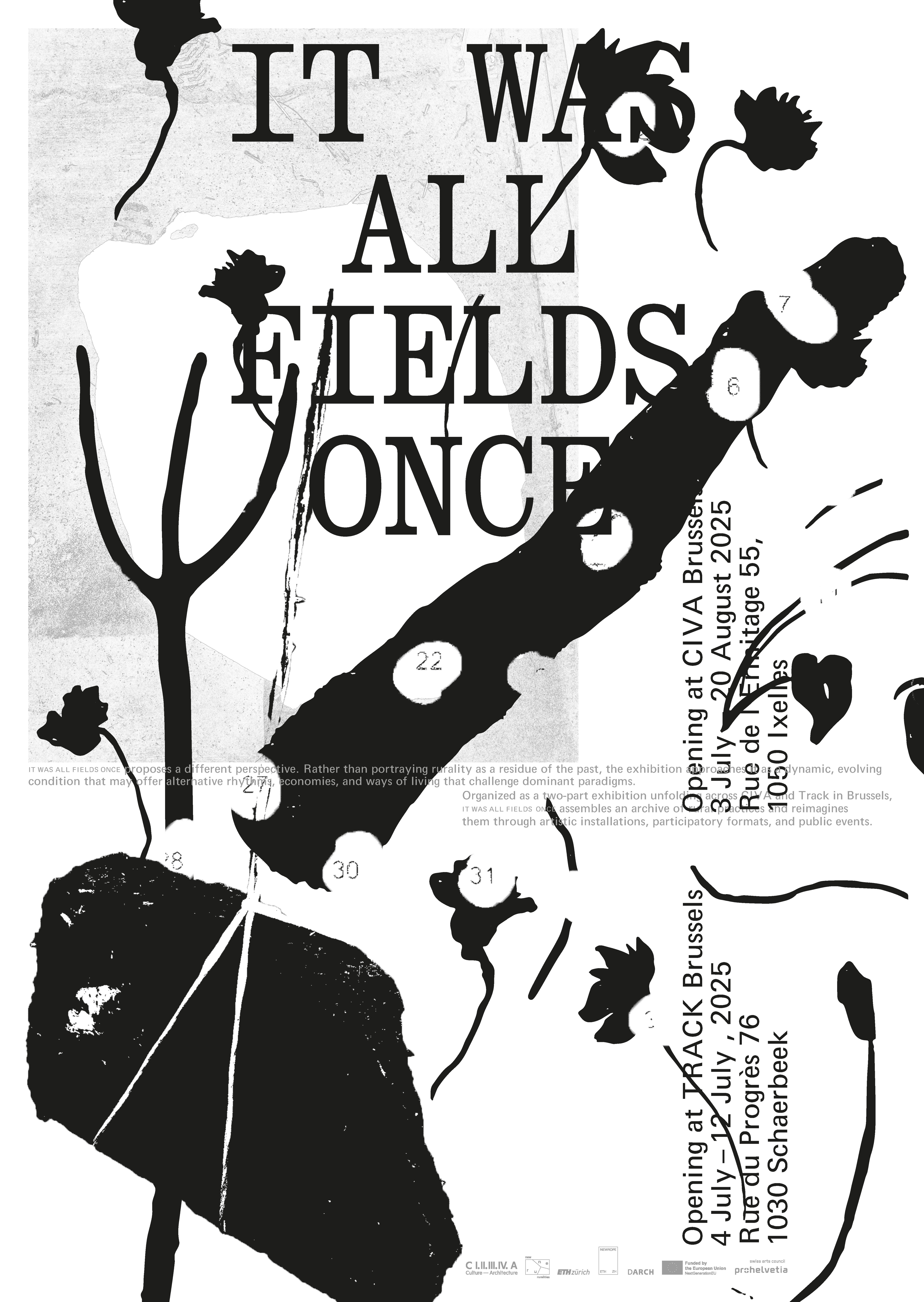IT WAS ALL FIELDS ONCE
In academic discourse and practice, the urban has asserted itself as the dominant and often unquestioned model of human settlement. The city has become the primary site of inquiry and imagination. The rural, by contrast, is often understood in opposition and as a spatial condition: less dense, less built, less connected, and, implicitly, less relevant.
Yet in today’s world, so-called rural landscapes are deeply entangled in global flows of capital, labour, and information. From industrial agriculture to logistical infrastructure, rural territories are anything but marginal. They are embedded within the same planetary systems that shape urban life.
Still, rurality persists as an idea laden with tradition, nostalgia, and political symbolism. In the popular imagination, it remains the inverse of the city: slow, quiet, simple. Romanticised through social media trends like cottagecore, or instrumentalised by nationalist rhetoric, the countryside becomes a screen onto which desires for authenticity and stability are projected. At the same time, it is dismissed as backwards, underdeveloped, or outside of progress. These contradictory framings share a common thread: they treat the rural as the Other of modernity, presenting it as static, nostalgic, and deficient.
And yet, what if this condition of being “out of sync” is not a shortcoming, but a form of resistance? What if the rural can offer alternative rhythms, economies, and ways of living that challenge dominant paradigms?
Rather than untouched or pristine, the rural is precisely a space of cultivation, one where human and non-human worlds meet, often in the name of sustenance. This entanglement makes it an essential terrain for rethinking how we live with, extract from, and relate to more-than-human worlds. Looking closely at the rural allows us to develop fairer and more just models of cohabitation, grounded in practice.
IT WAS ALL FIELDS ONCE is both an exploration and an invitation. It brings together spatial practices, research, and artistic perspectives that unsettle the urban-rural binary and trace the rural where it is least expected, even within the city itself. Rather than fixating on the rural as a place, the exhibition approaches it as a condition: shaped by memory, migration, ecology, labour, and desire. It focuses on practices, relationships, rituals, and traditions, all ready to be rediscovered, reinterpreted, and reinvented.
The exhibition unfolds across two complementary venues: CIVA and TRACK. CIVA begins to assemble an archive of rural practices, rituals, and artefacts, primarily gathered during the European academic exchange New Ruralities. TRACK expands and reimagines these through an artistic lens. Situated at a train station that physically and symbolically connects city and countryside, TRACK becomes a threshold: an in-between space that brings rurality into the urban and explores its transformative potential.
This marks the beginning of a growing collection of perspectives on rurality, not as something lost or in need of preservation, but as a dynamic force full of potential.
Curated by Juan Barcia Mas, Sophia Garner, and Iva Valkanova from the NEWROPE Chair of Architecture and Urban Transformation, ETH Zürich. Assisted by Charlotte Eybl and Constantin Ferst. With production support from Nemo Akkerman, Julius Baumanns, Caspar Bultmann, Nils Grootenzerink, Lauro Nächt, Zoé Rüttimann, and Manu Zaparta. With graphic design by Maria Peskina and Johanna Gratzer.
New Ruralities is a collaborative project developed within the Erasmus+ framework (2022–2025), coordinated by Nadia Casabella and Ananda Kohlbrenner (Université Libre de Bruxelles), with partners Roberto Dini, Silvia Lanteri, and Federico Coricelli (Politecnico di Torino); Marta Labastida and Cidália Silva (Universidade do Minho); Pablo Gallego and Xan Creus (Universidade da Coruña); Angel Burov (University of Architecture, Civil Engineering and Geodesy, Sofia); the NEWROPE Chair of Architecture and Urban Transformation, ETH Zürich; and expert contributors Jan Zaman (IdeaConsult), Stephan Kampelmann (Sonian Wood Coop), and Lucía Escrigas and Manuel Rodriguez López (RIA Foundation).
